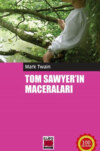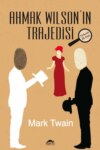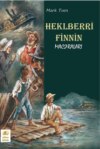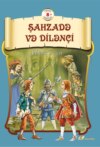Kitabı oku: «Personal Recollections of Joan of Arc — Volume 1», sayfa 6
Chapter 3 The Paladin Groans and Boasts
WE WERE twenty-five strong, and well equipped. We rode in double file, Joan and her brothers in the center of the column, with Jean de Metz at the head of it and the Sieur Bertrand at its extreme rear. In two or three hours we should be in the enemy’s country, and then none would venture to desert. By and by we began to hear groans and sobs and execrations from different points along the line, and upon inquiry found that six of our men were peasants who had never ridden a horse before, and were finding it very difficult to stay in their saddles, and moreover were now beginning to suffer considerable bodily torture. They had been seized by the governor at the last moment and pressed into the service to make up the tale, and he had placed a veteran alongside of each with orders to help him stick to the saddle, and kill him if he tried to desert.
These poor devils had kept quiet as long as they could, but their physical miseries were become so sharp by this time that they were obliged to give them vent. But we were within the enemy’s country now, so there was no help for them, they must continue the march, though Joan said that if they chose to take the risk they might depart. They preferred to stay with us. We modified our pace now, and moved cautiously, and the new men were warned to keep their sorrows to themselves and not get the command into danger with their curses and lamentations.
Toward dawn we rode deep into a forest, and soon all but the sentries were sound asleep in spite of the cold ground and the frosty air.
I woke at noon out of such a solid and stupefying sleep that at first my wits were all astray, and I did not know where I was nor what had been happening. Then my senses cleared, and I remembered. As I lay there thinking over the strange events of the past month or two the thought came into my mind, greatly surprising me, that one of Joan’s prophecies had failed; for where were Noel and the Paladin, who were to join us at the eleventh hour? By this time, you see, I had gotten used to expecting everything Joan said to come true. So, being disturbed and troubled by these thoughts, I opened my eyes. Well, there stood the Paladin leaning against a tree and looking down on me! How often that happens; you think of a person, or speak of a person, and there he stands before you, and you not dreaming he is near. It looks as if his being near is really the thing that makes you think of him, and not just an accident, as people imagine. Well, be that as it may, there was the Paladin, anyway, looking down in my face and waiting for me to wake. I was ever so glad to see him, and jumped up and shook him by the hand, and led him a little way from the camp — he limping like a cripple — and told him to sit down, and said:
“Now, where have you dropped down from? And how did you happen to light in this place? And what do the soldier-clothes mean? Tell me all about it.”
He answered:
“I marched with you last night.”
“No!” (To myself I said, “The prophecy has not all failed — half of it has come true.”) “Yes, I did. I hurried up from Domremy to join, and was within a half a minute of being too late. In fact, I was too late, but I begged so hard that the governor was touched by my brave devotion to my country’s cause — those are the words he used — and so he yielded, and allowed me to come.”
I thought to myself, this is a lie, he is one of those six the governor recruited by force at the last moment; I know it, for Joan’s prophecy said he would join at the eleventh hour, but not by his own desire. Then I said aloud:
“I am glad you came; it is a noble cause, and one should not sit at home in times like these.”
“Sit at home! I could no more do it than the thunderstone could stay hid in the clouds when the storm calls it.”
“That is the right talk. It sounds like you.”
That pleased him.
“I’m glad you know me. Some don’t. But they will, presently. They will know me well enough before I get done with this war.”
“That is what I think. I believe that wherever danger confronts you you will make yourself conspicuous.”
He was charmed with this speech, and it swelled him up like a bladder. He said:
“If I know myself — and I think I do — my performances in this campaign will give you occasion more than once to remember those words.”
“I were a fool to doubt it. That I know.”
“I shall not be at my best, being but a common soldier; still, the country will hear of me. If I were where I belong; if I were in the place of La Hire, or Saintrailles, or the Bastard of Orleans — well, I say nothing. I am not of the talking kind, like Noel Rainguesson and his sort, I thank God. But it will be something, I take it — a novelty in this world, I should say — to raise the fame of a private soldier above theirs, and extinguish the glory of their names with its shadow.”
“Why, look here, my friend,” I said, “do you know that you have hit out a most remarkable idea there? Do you realize the gigantic proportions of it? For look you; to be a general of vast renown, what is that? Nothing — history is clogged and confused with them; one cannot keep their names in his memory, there are so many. But a common soldier of supreme renown — why, he would stand alone! He would the be one moon in a firmament of mustard-seed stars; his name would outlast the human race! My friend, who gave you that idea?”
He was ready to burst with happiness, but he suppressed betrayal of it as well as he could. He simply waved the compliment aside with his hand and said, with complacency:
“It is nothing. I have them often — ideas like that — and even greater ones. I do not consider this one much.”
“You astonish me; you do, indeed. So it is really your own?”
“Quite. And there is plenty more where it came from” — tapping his head with his finger, and taking occasion at the same time to cant his morion over his right ear, which gave him a very self-satisfied air — “I do not need to borrow my ideas, like Noel Rainguesson.”
“Speaking of Noel, when did you see him last?”
“Half an hour ago. He is sleeping yonder like a corpse. Rode with us last night.”
I felt a great upleap in my heart, and said to myself, now I am at rest and glad; I will never doubt her prophecies again. Then I said aloud:
“It gives me joy. It makes me proud of our village. There is not keeping our lion-hearts at home in these great times, I see that.”
“Lion-heart! Who — that baby? Why, he begged like a dog to be let off. Cried, and said he wanted to go to his mother. Him a lion-heart! — that tumble-bug!”
“Dear me, why I supposed he volunteered, of course. Didn’t he?”
“Oh, yes, he volunteered the way people do to the headsman. Why, when he found I was coming up from Domremy to volunteer, he asked me to let him come along in my protection, and see the crowds and the excitement. Well, we arrived and saw the torches filing out at the Castle, and ran there, and the governor had him seized, along with four more, and he begged to be let off, and I begged for his place, and at last the governor allowed me to join, but wouldn’t let Noel off, because he was disgusted with him, he was such a cry-baby. Yes, and much good he’ll do the King’s service; he’ll eat for six and run for sixteen. I hate a pygmy with half a heart and nine stomachs!”
“Why, this is very surprising news to me, and I am sorry and disappointed to hear it. I thought he was a very manly fellow.”
The Paladin gave me an outraged look, and said:
“I don’t see how you can talk like that, I’m sure I don’t. I don’t see how you could have got such a notion. I don’t dislike him, and I’m not saying these things out of prejudice, for I don’t allow myself to have prejudices against people. I like him, and have always comraded with him from the cradle, but he must allow me to speak my mind about his faults, and I am willing he shall speak his about mine, if I have any. And, true enough, maybe I have; but I reckon they’ll bear inspection — I have that idea, anyway. A manly fellow! You should have heard him whine and wail and swear, last night, because the saddle hurt him. Why didn’t the saddle hurt me? Pooh — I was as much at home in it as if I had been born there. And yet it was the first time I was ever on a horse. All those old soldiers admired my riding; they said they had never seen anything like it. But him — why, they had to hold him on, all the time.”
An odor as of breakfast came stealing through the wood; the Paladin unconsciously inflated his nostrils in lustful response, and got up and limped painfully away, saying he must go and look to his horse.
At bottom he was all right and a good-hearted giant, without any harm in him, for it is no harm to bark, if one stops there and does not bite, and it is no harm to be an ass, if one is content to bray and not kick. If this vast structure of brawn and muscle and vanity and foolishness seemed to have a libelous tongue, what of it? There was no malice behind it; and besides, the defect was not of his own creation; it was the work of Noel Rainguesson, who had nurtured it, fostered it, built it up and perfected it, for the entertainment he got out of it. His careless light heart had to have somebody to nag and chaff and make fun of, the Paladin had only needed development in order to meet its requirements, consequently the development was taken in hand and diligently attended to and looked after, gnat-and-bull fashion, for years, to the neglect and damage of far more important concerns. The result was an unqualified success. Noel prized the society of the Paladin above everybody else’s; the Paladin preferred anybody’s to Noel’s. The big fellow was often seen with the little fellow, but it was for the same reason that the bull is often seen with the gnat.
With the first opportunity, I had a talk with Noel. I welcomed him to our expedition, and said:
“It was fine and brave of you to volunteer, Noel.”
His eye twinkled, and he answered:
“Yes, it was rather fine, I think. Still, the credit doesn’t all belong to me; I had help.”
“Who helped you?”
“The governor.”
“How?”
“Well, I’ll tell you the whole thing. I came up from Domremy to see the crowds and the general show, for I hadn’t ever had any experience of such things, of course, and this was a great opportunity; but I hadn’t any mind to volunteer. I overtook the Paladin on the road and let him have my company the rest of the way, although he did not want it and said so; and while we were gawking and blinking in the glare of the governor’s torches they seized us and four more and added us to the escort, and that is really how I came to volunteer. But, after all, I wasn’t sorry, remembering how dull life would have been in the village without the Paladin.”
“How did he feel about it? Was he satisfied?”
“I think he was glad.”
“Why?”
“Because he said he wasn’t. He was taken by surprise, you see, and it is not likely that he could tell the truth without preparation. Not that he would have prepared, if he had had the chance, for I do not think he would. I am not charging him with that. In the same space of time that he could prepare to speak the truth, he could also prepare to lie; besides, his judgment would be cool then, and would warn him against fooling with new methods in an emergency. No, I am sure he was glad, because he said he wasn’t.”
“Do you think he was very glad?”
“Yes, I know he was. He begged like a slave, and bawled for his mother. He said his health was delicate, and he didn’t know how to ride a horse, and he knew he couldn’t outlive the first march. But really he wasn’t looking as delicate as he was feeling. There was a cask of wine there, a proper lift for four men. The governor’s temper got afire, and he delivered an oath at him that knocked up the dust where it struck the ground, and told him to shoulder that cask or he would carve him to cutlets and send him home in a basket. The Paladin did it, and that secured his promotion to a privacy in the escort without any further debate.”
“Yes, you seem to make it quite plain that he was glad to join — that is, if your premises are right that you start from. How did he stand the march last night?”
“About as I did. If he made the more noise, it was the privilege of his bulk. We stayed in our saddles because we had help. We are equally lame to-day, and if he likes to sit down, let him; I prefer to stand.”
Chapter 4 Joan Leads Us Through the Enemy
WE WERE called to quarters and subjected to a searching inspection by Joan. Then she made a short little talk in which she said that even the rude business of war could be conducted better without profanity and other brutalities of speech than with them, and that she should strictly require us to remember and apply this admonition. She ordered half an hour’s horsemanship drill for the novices then, and appointed one of the veterans to conduct it. It was a ridiculous exhibition, but we learned something, and Joan was satisfied and complimented us. She did not take any instruction herself or go through the evolutions and manoeuvres, but merely sat her horse like a martial little statue and looked on. That was sufficient for her, you see. She would not miss or forget a detail of the lesson, she would take it all in with her eye and her mind, and apply it afterward with as much certainty and confidence as if she had already practised it.
We now made three night marches of twelve or thirteen leagues each, riding in peace and undisturbed, being taken for a roving band of Free Companions. Country-folk were glad to have that sort of people go by without stopping. Still, they were very wearying marches, and not comfortable, for the bridges were few and the streams many, and as we had to ford them we found the water dismally cold, and afterward had to bed ourselves, still wet, on the frosty or snowy ground, and get warm as we might and sleep if we could, for it would not have been prudent to build fires. Our energies languished under these hardships and deadly fatigues, but Joan’s did not. Her step kept its spring and firmness and her eye its fire. We could only wonder at this, we could not explain it.
But if we had had hard times before, I know not what to call the five nights that now followed, for the marches were as fatiguing, the baths as cold, and we were ambuscaded seven times in addition, and lost two novices and three veterans in the resulting fights. The news had leaked out and gone abroad that the inspired Virgin of Vaucouleurs was making for the King with an escort, and all the roads were being watched now.
These five nights disheartened the command a good deal. This was aggravated by a discovery which Noel made, and which he promptly made known at headquarters. Some of the men had been trying to understand why Joan continued to be alert, vigorous, and confident while the strongest men in the company were fagged with the heavy marches and exposure and were become morose and irritable. There, it shows you how men can have eyes and yet not see. All their lives those men had seen their own women-folks hitched up with a cow and dragging the plow in the fields while the men did the driving. They had also seen other evidences that women have far more endurance and patience and fortitude than men — but what good had their seeing these things been to them? None. It had taught them nothing. They were still surprised to see a girl of seventeen bear the fatigues of war better than trained veterans of the army. Moreover, they did not reflect that a great soul, with a great purpose, can make a weak body strong and keep it so; and here was the greatest soul in the universe; but how could they know that, those dumb creatures? No, they knew nothing, and their reasonings were of a piece with their ignorance. They argued and discussed among themselves, with Noel listening, and arrived at the decision that Joan was a witch, and had her strange pluck and strength from Satan; so they made a plan to watch for a safe opportunity to take her life.
To have secret plottings of this sort going on in our midst was a very serious business, of course, and the knights asked Joan’s permission to hang the plotters, but she refused without hesitancy. She said:
“Neither these men nor any others can take my life before my mission is accomplished, therefore why should I have their blood upon my hands? I will inform them of this, and also admonish them. Call them before me.”
When they came she made that statement to them in a plain matter-of-fact way, and just as if the thought never entered her mind that any one could doubt it after she had given her word that it was true. The men were evidently amazed and impressed to hear her say such a thing in such a sure and confident way, for prophecies boldly uttered never fall barren on superstitious ears. Yes, this speech certainly impressed them, but her closing remark impressed them still more. It was for the ringleader, and Joan said it sorrowfully:
“It is a pity that you should plot another’s death when your own is so close at hand.”
That man’s horse stumbled and fell on him in the first ford which we crossed that night, and he was drowned before we could help him. We had no more conspiracies.
This night was harassed with ambuscades, but we got through without having any men killed. One more night would carry us over the hostile frontier if we had good luck, and we saw the night close down with a good deal of solicitude. Always before, we had been more or less reluctant to start out into the gloom and the silence to be frozen in the fords and persecuted by the enemy, but this time we were impatient to get under way and have it over, although there was promise of more and harder fighting than any of the previous nights had furnished. Moreover, in front of us about three leagues there was a deep stream with a frail wooden bridge over it, and as a cold rain mixed with snow had been falling steadily all day we were anxious to find out whether we were in a trap or not. If the swollen stream had washed away the bridge, we might properly consider ourselves trapped and cut off from escape.
As soon as it was dark we filed out from the depth of the forest where we had been hidden and began the march. From the time that we had begun to encounter ambushes Joan had ridden at the head of the column, and she took this post now. By the time we had gone a league the rain and snow had turned to sleet, and under the impulse of the storm-wind it lashed my face like whips, and I envied Joan and the knights, who could close their visors and shut up their heads in their helmets as in a box. Now, out of the pitchy darkness and close at hand, came the sharp command:
“Halt!”
We obeyed. I made out a dim mass in front of us which might be a body of horsemen, but one could not be sure. A man rode up and said to Joan in a tone of reproof:
“Well, you have taken your time, truly. And what have you found out? Is she still behind us, or in front?”
Joan answered in a level voice:
“She is still behind.”
This news softened the stranger’s tone. He said:
“If you know that to be true, you have not lost your time, Captain. But are you sure? How do you know?”
“Because I have seen her.”
“Seen her! Seen the Virgin herself?”
“Yes, I have been in her camp.”
“Is it possible! Captain Raymond, I ask you to pardon me for speaking in that tone just now. You have performed a daring and admirable service. Where was she camped?”
“In the forest, not more than a league from here.”
“Good! I was afraid we might be still behind her, but now that we know she is behind us, everything is safe. She is our game. We will hang her. You shall hang her yourself. No one has so well earned the privilege of abolishing this pestilent limb of Satan.”
“I do not know how to thank you sufficiently. If we catch her, I — ”
“If! I will take care of that; give yourself no uneasiness. All I want is just a look at her, to see what the imp is like that has been able to make all this noise, then you and the halter may have her. How many men has she?”
“I counted but eighteen, but she may have had two or three pickets out.”
“Is that all? It won’t be a mouthful for my force. Is it true that she is only a girl?”
“Yes; she is not more than seventeen.”
“It passes belief! Is she robust, or slender?”
“Slender.”
The officer pondered a moment or two, then he said:
“Was she preparing to break camp?”
“Not when I had my last glimpse of her.”
“What was she doing?”
“She was talking quietly with an officer.”
“Quietly? Not giving orders?”
“No, talking as quietly as we are now.”
“That is good. She is feeling a false security. She would have been restless and fussy else — it is the way of her sex when danger is about. As she was making no preparation to break camp — ”
“She certainly was not when I saw her last.”
“ — and was chatting quietly and at her ease, it means that this weather is not to her taste. Night-marching in sleet and wind is not for chits of seventeen. No; she will stay where she is. She has my thanks. We will camp, ourselves; here is as good a place as any. Let us get about it.”
“If you command it — certainly. But she has two knights with her. They might force her to march, particularly if the weather should improve.”
I was scared, and impatient to be getting out of this peril, and it distressed and worried me to have Joan apparently set herself to work to make delay and increase the danger — still, I thought she probably knew better than I what to do. The officer said:
“Well, in that case we are here to block the way.”
“Yes, if they come this way. But if they should send out spies, and find out enough to make them want to try for the bridge through the woods? Is it best to allow the bridge to stand?”
It made me shiver to hear her.
The officer considered awhile, then said:
“It might be well enough to send a force to destroy the bridge. I was intending to occupy it with the whole command, but that is not necessary now.”
Joan said, tranquilly:
“With your permission, I will go and destroy it myself.”
Ah, now I saw her idea, and was glad she had had the cleverness to invent it and the ability to keep her head cool and think of it in that tight place. The officer replied:
“You have it, Captain, and my thanks. With you to do it, it will be well done; I could send another in your place, but not a better.”
They saluted, and we moved forward. I breathed freer. A dozen times I had imagined I heard the hoofbeats of the real Captain Raymond’s troop arriving behind us, and had been sitting on pins and needles all the while that that conversation was dragging along. I breathed freer, but was still not comfortable, for Joan had given only the simple command, “Forward!” Consequently we moved in a walk. Moved in a dead walk past a dim and lengthening column of enemies at our side. The suspense was exhausting, yet it lasted but a short while, for when the enemy’s bugles sang the “Dismount!” Joan gave the word to trot, and that was a great relief to me. She was always at herself, you see. Before the command to dismount had been given, somebody might have wanted the countersign somewhere along that line if we came flying by at speed, but now we seemed to be on our way to our allotted camping position, so we were allowed to pass unchallenged. The further we went the more formidable was the strength revealed by the hostile force. Perhaps it was only a hundred or two, but to me it seemed a thousand. When we passed the last of these people I was thankful, and the deeper we plowed into the darkness beyond them the better I felt. I came nearer and nearer to feeling good, for an hour; then we found the bridge still standing, and I felt entirely good. We crossed it and destroyed it, and then I felt — but I cannot describe what I felt. One has to feel it himself in order to know what it is like.
We had expected to hear the rush of a pursuing force behind us, for we thought that the real Captain Raymond would arrive and suggest that perhaps the troop that had been mistaken for his belonged to the Virgin of Vaucouleurs; but he must have been delayed seriously, for when we resumed our march beyond the river there were no sounds behind us except those which the storm was furnishing.
I said that Joan had harvested a good many compliments intended for Captain Raymond, and that he would find nothing of a crop left but a dry stubble of reprimands when he got back, and a commander just in the humor to superintend the gathering of it in.
Joan said:
“It will be as you say, no doubt; for the commander took a troop for granted, in the night and unchallenged, and would have camped without sending a force to destroy the bridge if he had been left unadvised, and none are so ready to find fault with others as those who do things worthy of blame themselves.”
The Sieur Bertrand was amused at Joan’s naive way of referring to her advice as if it had been a valuable present to a hostile leader who was saved by it from making a censurable blunder of omission, and then he went on to admire how ingeniously she had deceived that man and yet had not told him anything that was not the truth. This troubled Joan, and she said:
“I thought he was deceiving himself. I forbore to tell him lies, for that would have been wrong; but if my truths deceived him, perhaps that made them lies, and I am to blame. I would God I knew if I have done wrong.”
She was assured that she had done right, and that in the perils and necessities of war deceptions that help one’s own cause and hurt the enemy’s were always permissible; but she was not quite satisfied with that, and thought that even when a great cause was in danger one ought to have the privilege of trying honorable ways first. Jean said:
“Joan, you told us yourself that you were going to Uncle Laxart’s to nurse his wife, but you didn’t say you were going further, yet you did go on to Vaucouleurs. There!”
“I see now,” said Joan, sorrowfully. “I told no lie, yet I deceived. I had tried all other ways first, but I could not get away, and I had to get away. My mission required it. I did wrong, I think, and am to blame.”
She was silent a moment, turning the matter over in her mind, then she added, with quiet decision, “But the thing itself was right, and I would do it again.”
It seemed an over-nice distinction, but nobody said anything. If we had known her as well as she knew herself, and as her later history revealed her to us, we should have perceived that she had a clear meaning there, and that her position was not identical with ours, as we were supposing, but occupied a higher plane. She would sacrifice herself — and her best self; that is, her truthfulness — to save her cause; but only that; she would not buy her life at that cost; whereas our war-ethics permitted the purchase of our lives, or any mere military advantage, small or great, by deception. Her saying seemed a commonplace at the time, the essence of its meaning escaping us; but one sees now that it contained a principle which lifted it above that and made it great and fine.
Presently the wind died down, the sleet stopped falling, and the cold was less severe. The road was become a bog, and the horses labored through it at a walk — they could do no better. As the heavy time wore on, exhaustion overcame us, and we slept in our saddles. Not even the dangers that threatened us could keep us awake.
This tenth night seemed longer than any of the others, and of course it was the hardest, because we had been accumulating fatigue from the beginning, and had more of it on hand now than at any previous time. But we were not molested again. When the dull dawn came at last we saw a river before us and we knew it was the Loire; we entered the town of Gien, and knew we were in a friendly land, with the hostiles all behind us. That was a glad morning for us.
We were a worn and bedraggled and shabby-looking troop; and still, as always, Joan was the freshest of us all, in both body and spirits. We had averaged above thirteen leagues a night, by tortuous and wretched roads. It was a remarkable march, and shows what men can do when they have a leader with a determined purpose and a resolution that never flags.










